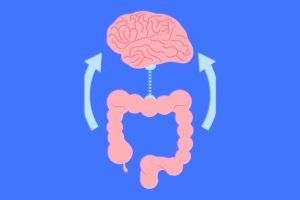While maintaining a healthy weight is influenced significantly by healthy eating and regular exercise, certain non-modifiable factors, such as genetics, also play a crucial role. Researchers at the University of Essex have identified 14 “skinny genes” that may collaborate to facilitate weight loss. Nevertheless, experts emphasize that dietary habits and lifestyle choices remain essential for both weight loss and long-term weight management.
“Obesity represents a global epidemic that increasingly burdens our society, economy, and healthcare systems,” stated Henry Chung, PhD, a lecturer in Sport and Exercise Sciences at the School of Sport, Rehabilitation, and Exercise Sciences (SRES) at the University of Essex, in an interview with Medical News Today. “While it is well recognized that exercise and diet are critical in addressing obesity, the situation is more complex.”
Chung further explained, “Numerous factors contribute to obesity and excessive weight gain. Notably, individuals may experience varying degrees of weight loss despite engaging in identical exercise regimens. This variability drives our exploration of genetic factors that might explain these differences and how they can inform future intervention strategies.”
Chung leads a recent study published in the journal Research Quarterly for Exercise and Sport, which uncovered 14 “skinny genes” that may collectively influence weight loss.
Weight Loss Enhanced by a Combination of 14 Health and Fitness Genes
The study involved 38 adult participants aged 20 to 40, who were randomly assigned to either an exercise training group, which followed a running program, or a control group for a duration of eight weeks. Participants were instructed to maintain their usual diets and refrain from any additional physical activity.
At the conclusion of the study, researchers screened all participants for 1,000 gene variants, leading to the identification of a specific combination of 14 genes potentially linked to enhanced weight loss.
Chung elaborated, “To put it simply, all genes identified in our study are commonly associated with health and fitness. Prior research has already established the functions of each gene individually. Collectively, these genes are related to energy balance and the metabolic pathways that utilize fuel in the body. What’s compelling is that while these genes have been assessed separately in previous studies, our research revealed their combined interaction significantly impacts weight loss.”
“Considering we analyzed 1,000 genes in total, it’s particularly intriguing that these specific genes associated with exercise emerged as significant. Theoretically, it stands to reason that they would play a role in weight loss since they are connected to how the body utilizes energy and metabolizes food to generate energy. They are involved in critical systems like fat metabolism, suggesting that individuals possessing these ‘advantageous genes’ might demonstrate superior fat-burning capabilities during exercise compared to those lacking these genetic traits,” Chung explained.
PARGC1A Gene: A Key Factor in Weight Loss
The research found that participants in the exercise group with the highest presence of “skinny genes” lost up to 5 kg (approximately 11 lbs) over the study period, while those without these genes lost an average of 2 kg (around 4.4 lbs).
The study highlighted the significance of the PARGC1A gene, which encodes for PGC-1α, a crucial element in cellular energy metabolism, particularly among participants who experienced the most weight loss.
“The PPARGC1A gene encodes PGC-1α, a transcriptional coactivator regulating energy metabolism and mitochondrial function. An increase in its upregulation suggests that engaging in activities such as exercise boosts proteins like CD36/FAT (fatty acid translocase) and FABP (fatty acid-binding proteins), which facilitate the transport of fatty acids across cell membranes,” Chung clarified.
“Upon reaching the mitochondria, PGC-1α enhances the expression of enzymes, such as acyl-CoA dehydrogenase, vital for the initial phase of fatty acid β-oxidation, wherein long-chain fatty acids are gradually broken down into acetyl-CoA, necessary for the Krebs cycle.”
Chung added, “In essence, if you possess this gene while someone else does not, it could be inferred that you will likely have more energy and a greater capacity to convert fat into usable energy instead of storing it. This gene is present in roughly 20-40% of the global population and has previously been linked to mitochondrial biogenesis, gluconeogenesis, energy metabolism—including lipid metabolism—and cholesterol regulation, thereby influencing obesity.”
Do I Still Need to Exercise If I Have ‘Skinny Genes’?
Chung and his research team emphasized that, while possessing “skinny genes” may support the weight loss journey, it does not negate the necessity for regular exercise and a balanced diet.
“The key takeaway is that, for most individuals, failing to engage in any physical activity may render the impact of these genes irrelevant. Without actively utilizing these genetic traits, their potential will remain untapped. It is through adding stress that bodily systems respond and adapt,” Chung advised.
“It’s essential to identify the most effective interventions tailored to individual needs, which constitutes a significant aspect of the challenge,” he added.
Chung highlighted that the main conclusion from this research is that there is no universal solution; personalized training strategies are crucial.
Overcoming Genetic Predispositions
The study does have certain limitations. The authors acknowledge that the genotype DNA chip utilized in their research only encompasses 1,000 single nucleotide polymorphisms, whereas other chips include thousands.
“This limitation suggests that certain interactions may not have been accounted for,” they noted. Further investigation is warranted to explore these potential interactions, along with the connections between genetics, diet, and obesity.
MNT also consulted with Mir Ali, MD, a board-certified bariatric surgeon and medical director of MemorialCare Surgical Weight Loss Center at Orange Coast Medical Center in Fountain Valley, CA, regarding this study.
“This research, although conducted with a relatively small sample size, corroborates findings from other studies indicating that genetics plays a significant role in determining a person’s weight and overall body composition,” Ali remarked. “Obesity is a multifactorial disease, and genetics is merely one facet. The researchers stressed that individuals with ‘skinny genes’ must still prioritize proper nutrition and physical activity.”
“Having a genetic predisposition toward being underweight or overweight does not imply that it cannot be addressed. Even those who are not overweight may encounter serious health issues if they consume unhealthy foods. A nutritious diet and regular exercise are crucial for everyone aiming to sustain a healthy weight and avoid health complications. Unfortunately, there is no one-size-fits-all diet or exercise plan, making it challenging to determine what works best for each individual,” Ali explained.
“Expanding this research to encompass optimal dietary strategies tailored to different genetic profiles would be beneficial in guiding patients toward achieving and maintaining good health,” Ali concluded.




